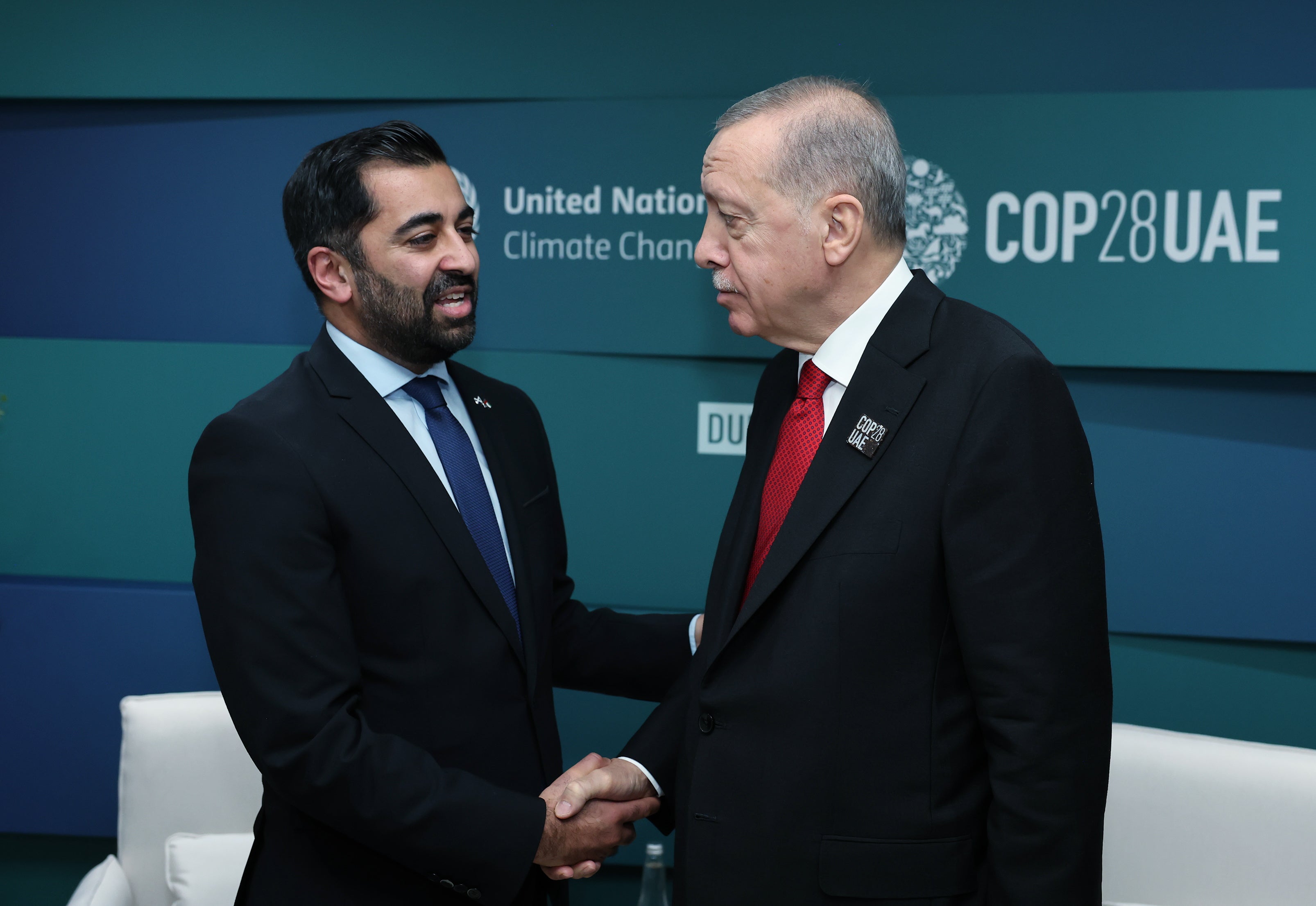Why David Cameron rebuked Scotland’s first minister Humza Yousaf over a foreign policy meeting
Yousaf says the intervention is ‘petty and misguided’ but there’s nothing new about devolved governments seeking meetings overseas, as Sean O’Grady explains


New foreign secretary Lord Cameron caused a stir with a strongly worded letter to Scotland’s first minister. With barely disguised anger, the newly ennobled Cameron reprimanded Humza Yousaf for having a quasi-diplomatic meeting with President Tayyip Erdogan of Turkey (a man, it must be said, who shows little empathy towards separatist movements in his own country).
The exchange took place at the Cop28 climate summit in Dubai, and the absence of a Foreign, Commonwealth and Development Office (FCDO) official seems to have sent Cameron up his richly decorated office wall. Cameron told Yousaf – via Angus Robertson, the Scottish minister for external affairs – to observe protocol or else: “Any further breaches of the protocol of ministerial meetings having [an] FCDO official present will result in no further FCDO facilitation of meetings or logistical support. We will also need to consider the presence of Scottish government offices in UK government posts.” It underscores tensions between Westminster and the devolved administrations.
What does Humza Yousaf say?
As one might expect, he dismissed Cameron’s warning as “really petty and frankly misguided”. But more embarrassing for Cameron is the claim that a foreign office representative was simply unavailable, possibly due to an innocent mix-up over timings. A spokesperson for the first minister commented: “The nature of events such as Cop is that timings can change at the last minute, and the FCDO representative was elsewhere at the time it was convenient for the Turkish president to meet. Any threat by the UK government to curtail the Scottish government’s international engagement is misguided and would work against Scotland’s interests.” A Scottish government source added: “You can hardly say to a president, ‘Can you wait a second while we find our chaperone?’”
What’s the problem, anyway?
In the slightly haughty words of a Cameron aide: “Foreign affairs is reserved [to Westminster] under the Scotland Act and, in such turbulent times, the need for the UK to speak on the world stage with one consistent voice is more important than ever.” Given the meeting was with Erdogan, there may have been some special sensitivity about the Israel-Hamas war.
Is this a “first offence”?
No. For example, Cameron’s predecessor, James Cleverly, issued a similar warning when Yousaf met the Icelandic prime minister without UK officials in September at the UN General Assembly.
Has Scotland got its own foreign office now?
Sort of. After the 2016 Brexit referendum – in which Scotland voted to remain in the EU – the SNP administration at Holyrood created a Minister for UK Negotiations on Scotland’s Place in Europe so that it would be represented in Brexit negotiations. This wasn’t very successful, but the role has evolved and Robertson was appointed Cabinet secretary for the Constitution, Europe and External Affairs in 2020. The Scottish External Affairs Directorate has the responsibility for “protecting our place and interests in Europe”, under the “Global Affairs Framework”.
The Scottish government says its network of international representative offices is there “to promote Scottish interests overseas and strengthen our relationships with countries and continents”. There’s one in London, and also in Beijing, Berlin, Brussels, Copenhagen, Dublin, and Washington DC.
Is this sort of thing usual?
For devolved administrations keen on presenting themselves internationally as a kind of embryonic national government, it is quite routine. The administrations of Quebec and Catalonia have been doing this with quasi-embassies and ambassadors for decades. So, in a lower profile way, does the Welsh government which has a larger network of international offices, though these operated more at a state/provincial level, including three each in China and India, and five in America.
By comparison, there is also the current practice of the UK Department for Business and Trade making “trade deals” with individual US states, whereas responsibility for international trade is reserved to the Congress in Washington DC. The UK has also been active in developing bilateral relations with EU member states, such as Italy, France and the Baltic states (less so Greece), no doubt to the irritation of the European Commission.
Can the UK government stop such activity?
As Cameron says, it can withdraw FCDO support and the FCDO could even try to frustrate meetings and exchanges. But if a Scottish government minister wants to go somewhere abroad and talk to their counterpart about world affairs, there’s not much ultimately that the FCDO can do to block such encounters.
How could Whitehall make things better?
Arguably, if Westminster made some effort to liaise with the devolved administrations, as it is supposed to, there would be no need for separate representations abroad. However, the Conservative government has been wary of any move that suggests the UK is developing a federalist system government; it is precisely this resistance that prevented closer consultations during Covid, as we now learn from the Covid-19 inquiry.






Join our commenting forum
Join thought-provoking conversations, follow other Independent readers and see their replies
Comments